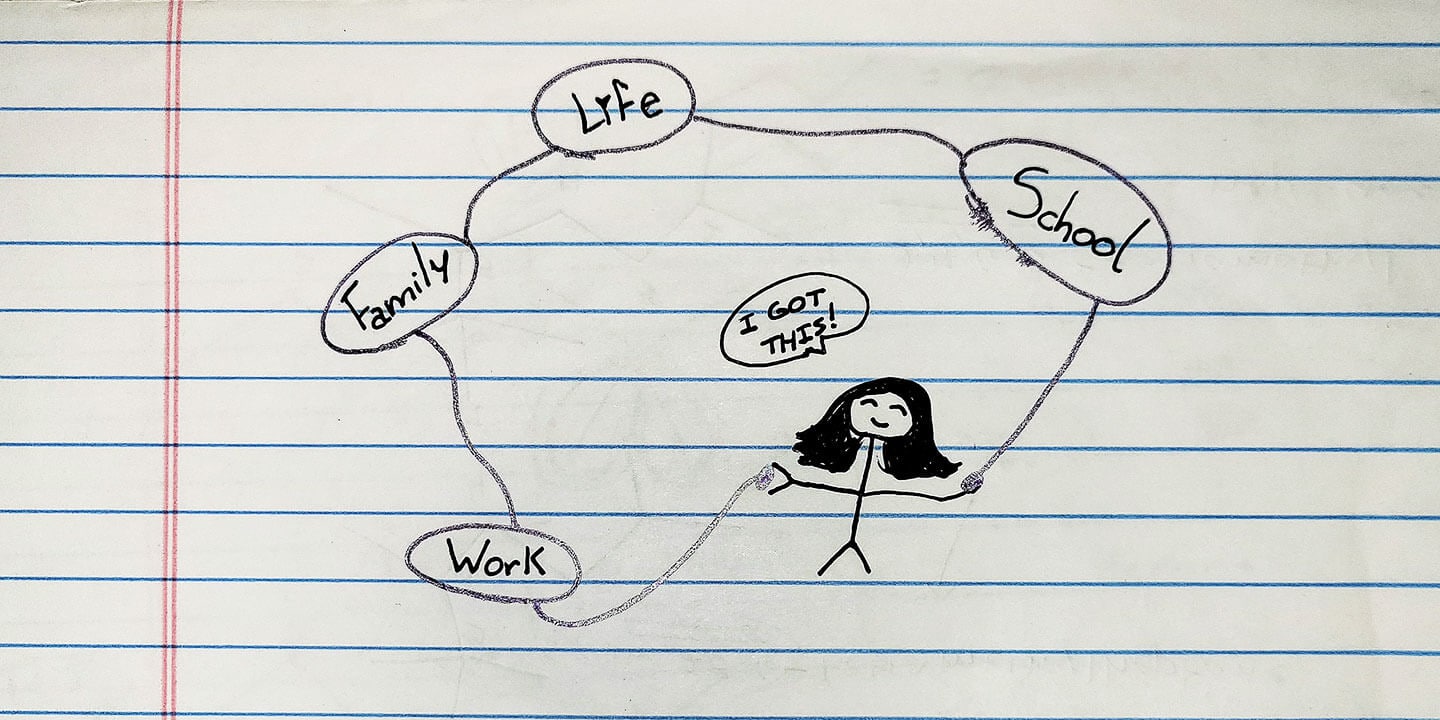
Stress: What It Is and How to Handle It

Stress is not inherently a bad thing. Stress can be a good motivator and can help you be productive. No one lives a completely stress-free life. The important thing to recognize is when your stress begins to take over everyday tasks and becomes counter-productive. If your stress begins to impinge on your ability to complete daily tasks or if it becomes debilitating, it’s well past the point of you having to talk to someone. Here are four things students can do to manage stress.
Evaluate The Semester
First, understand that semesters are variable and can range from overwhelming to easy. It is not forever, even though it may seem that way, and you will get through it. Lowering your expectations for school and concentrating more on improving your life balance to improve your stress will work wonders for your mental well-being.
If you are working while also enrolled in school, try to see if you can reduce your work hours for your busiest school weeks or around big projects. Go over your semester with your boss and see if you can work around difficult weeks. Perhaps you can drop a shift here or there or take a few fewer hours and make up for it later. Trying to balance too many things at once is one of the leading causes of stress and the simplest solution is almost always the best: do less!
Have a Game Plan
Maximizing your available time is another key tip in reducing the stress you feel when your plate is full. Getting a scheduler and planning out your week, hour by hour or day by day can help you feel more in control of your life. You can see what you must complete and can more easily schedule more downtime. That could mean you take a half-hour/hour each day to go for a walk or run, read, hang out with friends, go to the gym, watch tv, or just zone out. Make sure you are actively scheduling your time!
Use Your Resources
One of the hardest things to do when you are feeling overwhelmed is to reach out for help. This means going to your professor's office hours when you don't understand a concept in class. This means heading over to your wellness center and talking to a counselor about your stress. This means participating in campus activities or club events. This means seeking out workshops dedicated to making you a better student. Utilize the resources on your campus that are there to make your life easier!
Study for Mastery
Lastly, studying more efficiently can reduce the amount of time it feels like you’re spending on tasks. Don't spend 4 hours studying what could be learned in 20 min. One of the worst ways that you can study is simply by re-reading the material. Instead, try writing out your notes again or writing them in a different format; even better yet, explain your notes to a friend! Mastery of a subject comes when you can explain it to someone else. For math or science-heavy subjects, the only way to study is by practicing questions repeatedly, so get extra questions from your professor or online.
Putting these tips into practice can be much harder than just reading about them. It is important to take small, incremental steps and make sure you aren’t overwhelming yourself all at once.
Do you have a compelling story or student success tips you’d like to see published on the Pearson Students blog? If you are a college student and interested in writing for us – click here to pitch your idea and get started!
About the author

Andrew Bierbower
Andrew Bierbower is a sophomore at Lone Star College-University Park in Texas, pursuing his associate degree in Mechanical Engineering with plans to transfer to Rice University to continue his engineering studies. He is an active member of the Honors College at University Park and in his free time, Andrew loves to volunteer at Space Center Houston and get young students involved in hands-on STEM activities. He is one of two Pearson Campus Ambassadors for the entire Lone Star College System.


